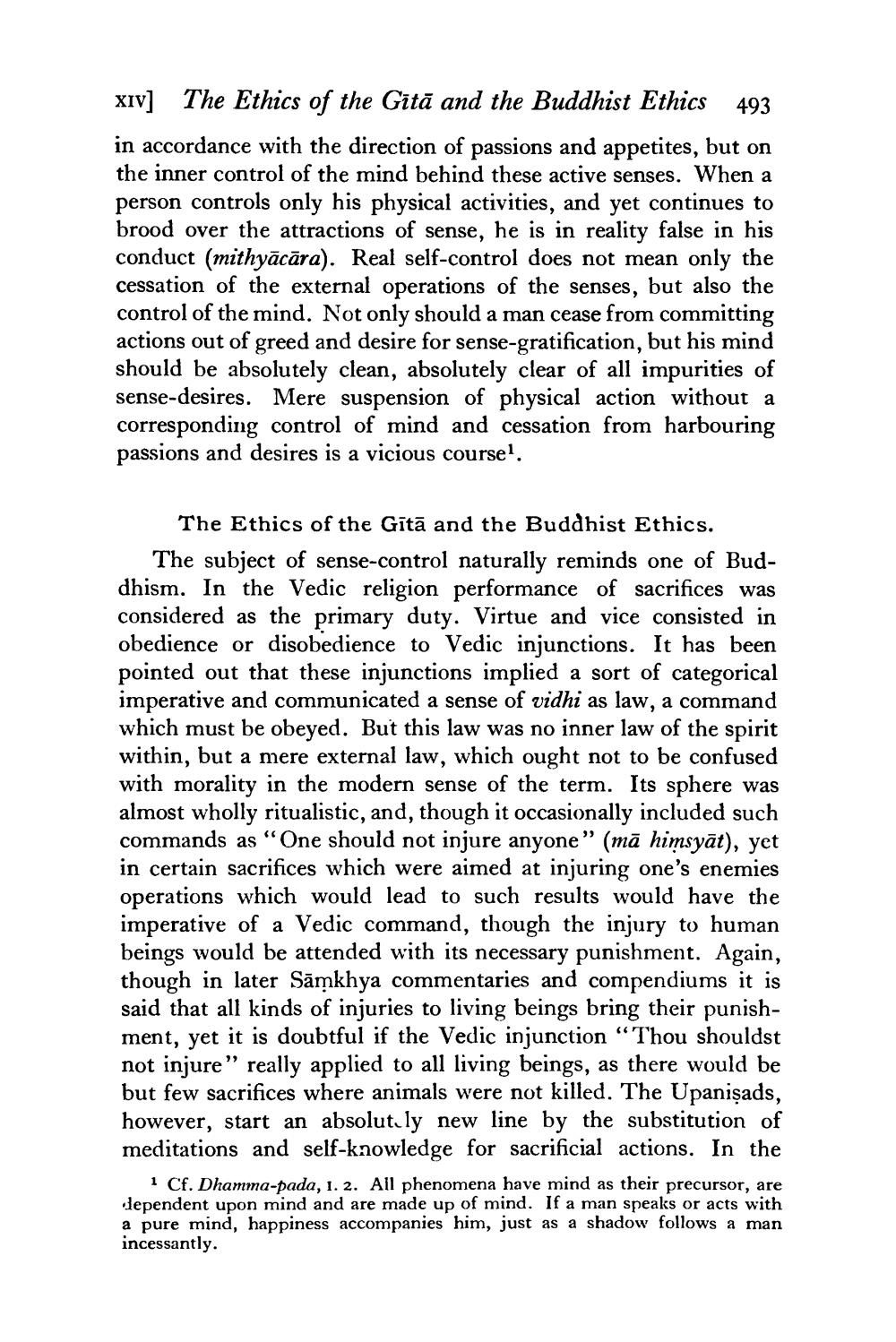________________
XIV] The Ethics of the Gita and the Buddhist Ethics 493
in accordance with the direction of passions and appetites, but on the inner control of the mind behind these active senses. When a person controls only his physical activities, and yet continues to brood over the attractions of sense, he is in reality false in his conduct (mithyācāra). Real self-control does not mean only the cessation of the external operations of the senses, but also the control of the mind. Not only should a man cease from committing actions out of greed and desire for sense-gratification, but his mind should be absolutely clean, absolutely clear of all impurities of sense-desires. Mere suspension of physical action without a corresponding control of mind and cessation from harbouring passions and desires is a vicious course1.
The Ethics of the Gītā and the Buddhist Ethics.
The subject of sense-control naturally reminds one of Buddhism. In the Vedic religion performance of sacrifices was considered as the primary duty. Virtue and vice consisted in obedience or disobedience to Vedic injunctions. It has been pointed out that these injunctions implied a sort of categorical imperative and communicated a sense of vidhi as law, a command which must be obeyed. But this law was no inner law of the spirit within, but a mere external law, which ought not to be confused with morality in the modern sense of the term. Its sphere was almost wholly ritualistic, and, though it occasionally included such commands as "One should not injure anyone" (mā himsyāt), yet in certain sacrifices which were aimed at injuring one's enemies operations which would lead to such results would have the imperative of a Vedic command, though the injury to human beings would be attended with its necessary punishment. Again, though in later Samkhya commentaries and compendiums it is said that all kinds of injuries to living beings bring their punishment, yet it is doubtful if the Vedic injunction "Thou shouldst not injure" really applied to all living beings, as there would be but few sacrifices where animals were not killed. The Upanisads, however, start an absolutely new line by the substitution of meditations and self-knowledge for sacrificial actions. In the
1 Cf. Dhamma-pada, 1. 2. All phenomena have mind as their precursor, are dependent upon mind and are made up of mind. If a man speaks or acts with a pure mind, happiness accompanies him, just as a shadow follows a man. incessantly.




